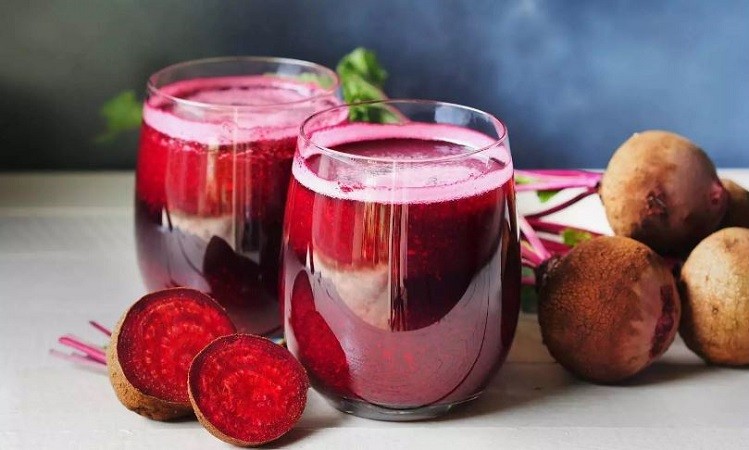
Drinking beetroot juice daily for 6 months after having a stent fitted reduced the possibility of angina patients having a heart attack or needing a repeat procedure, revealed a study done in London, led by an Indian-origin researcher.
It is in this context, it is fitting to shedding some light on Angina diseases and the habit of Drinking beetroot juice daily.
Angina, a condition characterized by chest pain or discomfort, is often caused by reduced blood flow to the heart muscle. Managing angina and promoting heart health is crucial to improve the quality of life for individuals with this condition. Recent studies suggest that incorporating beetroot juice into the daily diet may offer significant benefits for angina patients by enhancing cardiovascular health. This article explores the potential of daily beetroot juice consumption as a natural remedy to support heart health in individuals with angina.
Angina is a symptom of an underlying heart condition, typically caused by reduced blood flow through the coronary arteries. When the heart muscle doesn't receive enough oxygen-rich blood, it can lead to chest pain, pressure, or discomfort. Angina is commonly associated with atherosclerosis, a condition characterized by the buildup of plaque in the arteries, reducing their ability to deliver adequate blood supply to the heart.
The Potential of Beetroot Juice: Beetroot juice, derived from the root vegetable known as Beta vulgaris, has gained attention for its potential cardiovascular benefits. It is rich in dietary nitrates, which the body converts into nitric oxide. Nitric oxide helps relax and widen blood vessels, improving blood flow and reducing blood pressure. Additionally, beetroot juice contains antioxidants and other bioactive compounds that contribute to its heart-protective effects.
Research suggests that daily consumption of beetroot juice can lower blood pressure and improve blood flow, thus benefiting individuals with angina. Nitric oxide promotes the dilation of blood vessels, enabling better circulation to the heart muscle. By reducing blood pressure, beetroot juice may also alleviate the workload on the heart, reducing the frequency and severity of angina episodes.
Regular beetroot juice intake has been associated with improved exercise capacity in individuals with cardiovascular conditions. The nitrates in beetroot juice enhance the efficiency of energy production within the muscles, allowing individuals to exercise for longer durations without experiencing excessive fatigue or discomfort. This increased exercise capacity can be particularly beneficial for angina patients, as physical activity is an essential aspect of managing the condition and promoting overall cardiovascular health.
The rich antioxidant content in beetroot juice helps combat oxidative stress, a condition where there is an imbalance between free radicals and the body's ability to neutralize them. Oxidative stress contributes to the development and progression of cardiovascular diseases, including angina. Beetroot juice's anti-inflammatory properties also play a role in reducing inflammation within blood vessels, improving their function and flexibility.
To reap the potential benefits of beetroot juice, it is essential to incorporate it into the daily diet. Here are some tips to consider:
Freshly squeezed beetroot juice is preferable over processed or bottled versions, as it retains more nutrients and bioactive compounds.
Start with small quantities and gradually increase the intake to allow the body to adjust to the nitrates present in beetroot juice.
Consider mixing beetroot juice with other fruits or vegetables to enhance the taste and overall nutritional profile.
Consult with a healthcare professional, especially if you have existing health conditions or are taking medications, to ensure beetroot juice is suitable for you.
Daily consumption of beetroot juice holds promise as a natural approach to boosting heart health in angina patients. The dietary nitrates, antioxidants, and other beneficial compounds found in beetroot juice contribute to improved blood flow, reduced blood pressure, and enhanced exercise capacity. As with any dietary change, it is recommended to consult a healthcare professional before incorporating beetroot juice into your routine. By adopting a comprehensive approach that includes a healthy diet, and regular exercise.